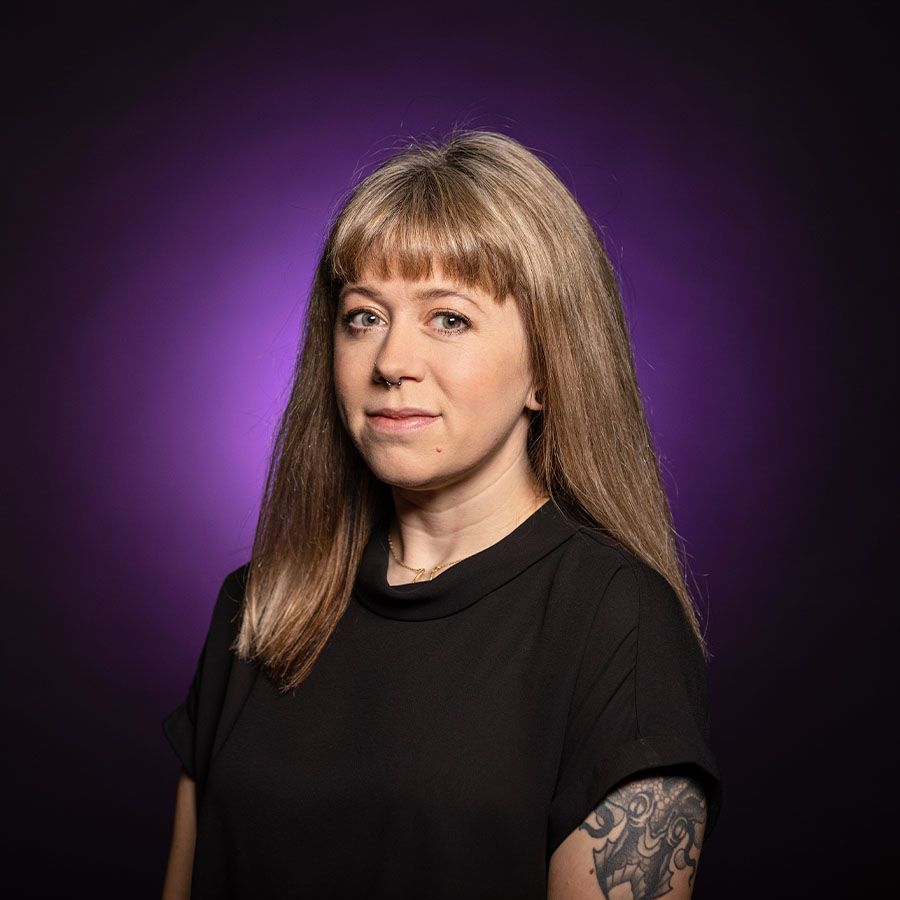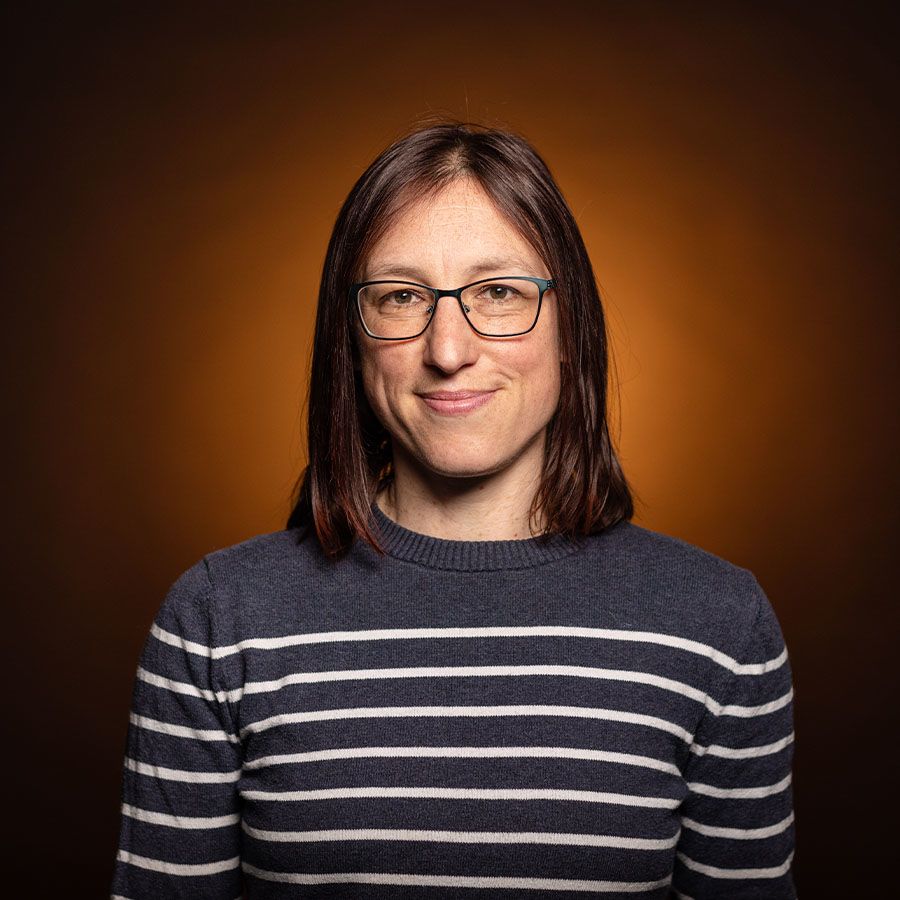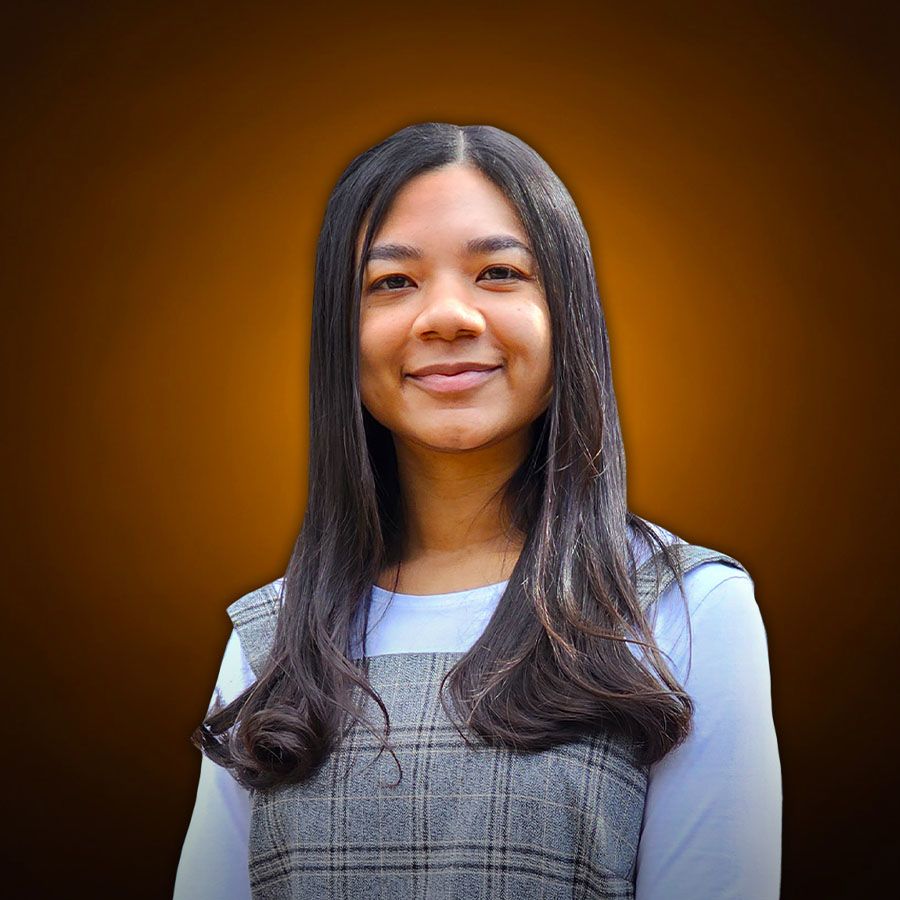In it together: where research and real world experience meet

Peoples’ experiences of health services are a vital resource for researchers working to improve them. But is it possible for researchers and people with direct personal experience to have equal power within a project? Cara Gates, Kate Farley and Natalie Mark reflect on the challenges and opportunities of co-production.
In the UK, all of us are past, current or future patients of the NHS. Your experiences of living with specific clinical conditions or illnesses – and your treatment when you access these services – will be unique. Access can be easy for some individuals, and less so for others.
Your lived experience and the expertise you gain in living with your condition should be visible in the way that care in the NHS is designed and delivered, to make this inclusive for others in similar situations.
One way of ensuring this is through ‘co-production’ in research to improve health services. Co-production means involving people with direct experience of using services as full partners in projects. This concept isn’t new, but how it’s applied varies widely.
Research projects can be done in so many different ways, with a huge range of aims, target groups, approaches and budgets, so should all public involvement look the same?
There are different ways of involving people in research. Co-production may be seen as the gold standard of involvement, but sometimes budgets, time and other constraints mean it isn’t possible.
What researchers can do under these limits is to be clear, reflective and honest about what they are doing to involve lived-experience contributors, and make sure it’s always done in a meaningful way.
Our experience through FReSH START

The three of us are currently part of FReSH START, a programme of research developing and testing talking therapies for people who self-harm.
Right from applying for funding, the FReSH START study has incorporated the views of people with lived experience, and our research team is made up of researchers and lived-experience experts. We have all developed personal connections to co-production in different ways.
Our experiences of co-production
Natalie’s experience
“Through my lived experience of various mental and physical health conditions, I’ve been invited into a number of projects labelled ‘co-production’. It doesn’t take long to discover that ‘co-production’ isn’t what’s happening.
For me, co-production projects start with all partners being involved as equals from the outset. There’s a clear definition of what everyone means by co-production. The group’s values follow the ethos of doing with, not doing to or for people. Everyone’s skills and experiences are valued: this includes paying people fairly. Everyone is honest, transparent and passionate about what they are trying to achieve with a compassionate approach to one another.
Ultimately, respect sits at the heart of co-production. Respect for the experiences, skills and knowledge that each person brings and shares, respect for different opinions, and respect for the relationships that are being built. It’s more than people ‘telling their stories’.”
Cara’s experience
“Through my research on dementia care, I’ve observed how ‘person-centred’ care can transform the way we see a person living with dementia.
People may have difficulties in communicating their needs when they’re receiving care. Misunderstandings can escalate and lead to very bad experiences. By listening to the person and their loved ones, we can understand more about who they are and the choices they would make while they receive care.
Understanding how we can improve a person’s experience of care, and consequently the way they react to the world around them, is the first step.
Co-production should go beyond listening and create opportunities for people with lived experience to actively change the way that care is delivered. We have a responsibility as health researchers to involve people with lived experience.”
Kate’s experience
“I’ve seen the gradual growth of patient and public involvement in projects over time. Early projects definitely adopted a ‘tick box’ approach, simply requiring that someone with lived experience attended some meetings.
I could see that this wasn’t enough, but it took time to learn what I could do as a researcher. Now I’ve been involved with more projects, I’ve seen the potential benefits and need for greater involvement of the people at the heart of the research.
What’s clear is the importance of learning from experience. We’ve got things wrong or not involved people enough along the way, but we have increased and improved what we do with each project. It’s exciting to begin to see the diverse ways in which people can authentically engage with research.”
“One important question is: ‘Who’s not in the room – and why?’”

Involving people with lived experience in FReSH START has helped us to better understand the reasons why people who have had therapy consider it to be successful in terms of self-harm. This ended up being very different to how the medical profession define success. It’s vital we work out ways to join these views together, because only successful treatments will get funding in the NHS.
People with lived experience are more than ‘just patients’ with a certain condition. They are fully formed individuals with skills and insights. As researchers, we might think we know what’s important to people when creating and testing a service for them, but still fail to see the barriers people face in accessing services.
We need to deliver research with people, not to them, otherwise we may miss learning about important steps in the pathway to healthcare that lead to inequalities – and by doing so reinforce them.
One important question for us to ask is, ‘Who’s not in the room – and why?’ It’s vital to involve people with a variety of backgrounds.
Characteristics like race, gender identity and age might prevent people from stepping into an established service and challenging the way things are done. These are due to fundamental, systemic issues rooted in racism, ageism, and misogyny.
Researchers in positions of power need to be aware of their privilege, and be willing to have conversations about power imbalances and increased representation that they may find difficult.
But if co-production is an after-thought, representation won’t be diverse. Only through experience will we discover gaps in care, and understand how to address them meaningfully.
We must also consider the harm that people have previously experienced when being asked to use their lived experience. People describe experiences of ‘being mined’ for their stories and not feeling psychologically safe afterwards. These types of experiences can deter people from being part of research going forward. So it’s crucial that we do our very best not to cause anyone additional harm.
This is why co-production is key: it allows us to create a safe environment and highlight these barriers to involvement from the outset. Trust is essential for anyone accessing health services. Co-production is especially vital in mental healthcare.
We’ve been fortunate to work with a group of passionate and confident individuals who have helped us to challenge our assumptions about meaningful co-production. This has helped us to change the way we do things along the way.
But we haven’t always included diverse voices in the room, and we were lucky to have had the chance to reflect on this and do something to change it.
Pause for thought

In 2020, we were ready to open clinical trials for our project. Then the COVID-19 pandemic hit.
We were disappointed about pausing our study, especially as support for people who self-harm became even more important with the country in lockdown and many existing services unable to continue as normal.
But this pause did give us the opportunity to take a step back and talk to our third sector partners about some of the key challenges they faced in supporting people who self-harm.
One of the first issues we addressed was to think about whether in the past we’ve involved people with lived experience in tokenistic ways. A minimum requirement from funders, for example, might be that people with lived experience attend research meetings. But, as researchers, we can be at risk of equating ‘being present’ with ‘being involved’.
Our contributors helped us to understand that this approach was a tick-box exercise at best. At worst, it could be a negative experience, creating imbalances in knowledge and power.
For instance, as researchers we can try to share information with our collaborators in advance of any meeting. But people who aren’t working on a project full-time won’t be as familiar with the rationale behind it, the processes involved, or the jargon often used by project teams. They may feel uncomfortable interrupting a meeting to ask questions which might help them along the way.
Some workshops may be too large for everyone’s voices to be heard. If a person with lived experience remains quiet or says positive things, this might be what they think we as researchers want to hear. This can lead to confirmation bias and, in turn, no meaningful change.
“By asking ‘why’, collaborators force us to think differently”

We also discussed wider concerns around language and terminology related to self-harm and mental health, and the ways in which they are understood.
Mental health remains heavily stigmatised in our society. Those experiencing mental health conditions are more likely to experience stigma, to have associated problems with their physical health, and to face power imbalances between those who provide mental health services and those who use them.
This raised important questions about the inequalities in mental health services, in particular why access is harder for people from communities racialised by the White-led systems we live in.
People from racialised communities are more likely to be penalised within mental health services; they are, for example, more likely to be sectioned or medicated than offered talking therapy.
Some people from racialised communities may not think of self-harm as a medical problem. Individuals may prefer to seek support from their community or from faith or spiritual leaders. Some may prefer the anonymity of the internet.
Tangible concerns about institutional racism, power imbalances and breaches in confidentiality are not helped by services which lack cultural competency and understanding.
So, even when we’re designing a new intervention to support people who self-harm, if it sits within existing services, it can remain inaccessible to many. If we can’t represent a diverse range of backgrounds when testing that intervention, we might miss important lessons that could benefit a wider group of people.
Researchers often have quite fixed ideas about how things work in healthcare, and when members of the public have ideas that challenge these systems, it can be difficult to imagine doing things differently.
By asking ‘why?’ – and ‘why not?’ – collaborators force us to think about the possibilities. Both boundaries and possibilities become less fixed.
Being realistic
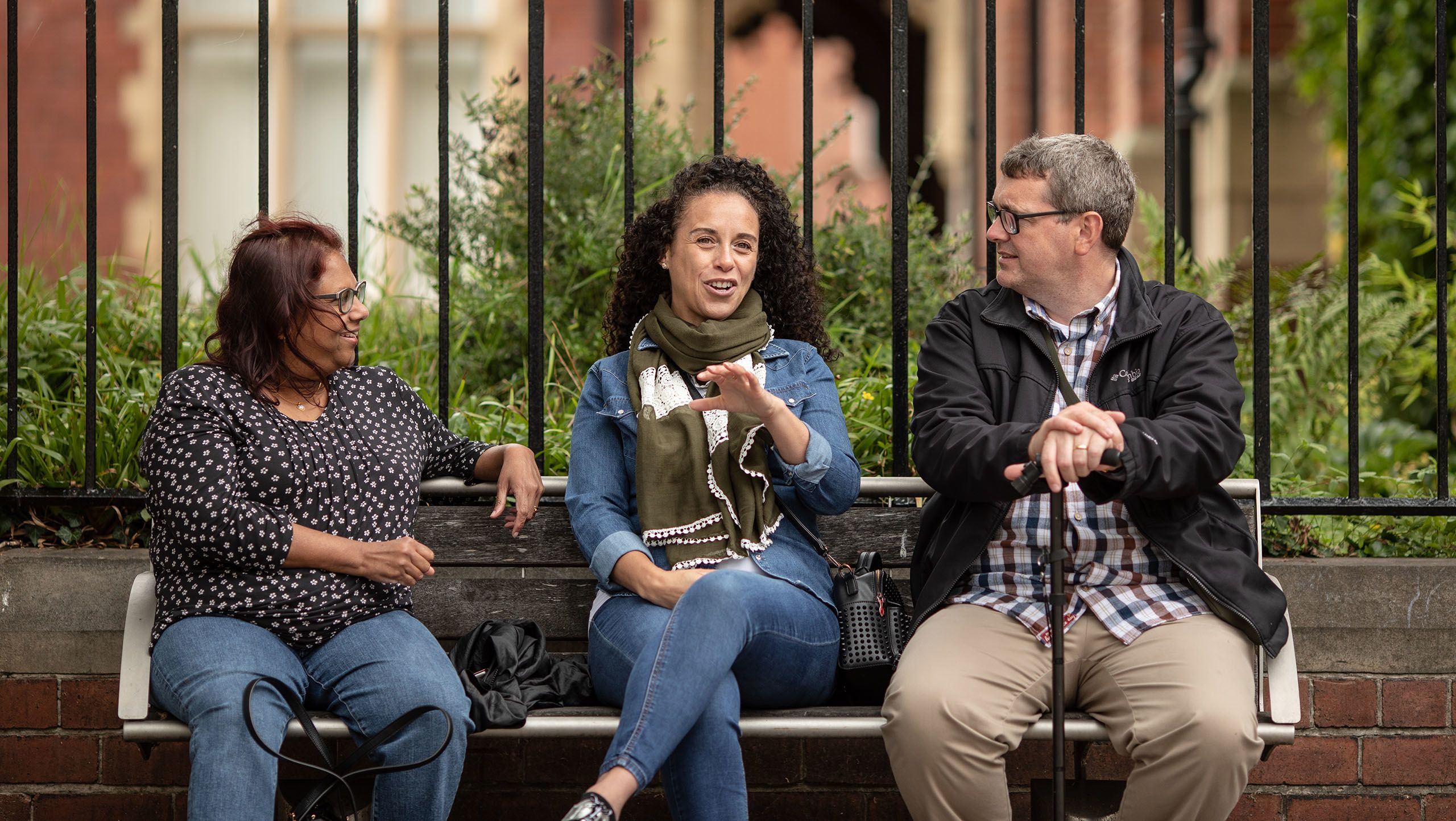
Being aware of these issues doesn’t mean our research can immediately address them. When we’re asked to design a service that the NHS can deliver, we’re bound by its existing resources and policies.
Such constraints might mean, for example, that only English-speaking therapists are available or that there’s no funding for travel expenses or allowances for people who can’t access support online.
Despite working with people with a diverse range of lived experiences, we’re limited in what we can achieve together. So is it possible for researchers and lived experience members to have equal power within a project?
When ideas are held back by constraints such as funding, the research setting, or the scope of study design, this creates frustration.
It’s frustrating for those sharing their experiences: they’ve revisited potentially distressing experiences in the hope of ‘making a difference’ only to find that they’re unable to do so. And it’s frustrating for the researchers who can see the potential for real, meaningful change, but know they can’t take these important ideas further because of such limitations.
So it’s important to be realistic in co-production. This means exploring what is – and isn’t – possible early on. This needn’t stop us identifying ideal practice, but it does help to manage expectations of what can be done now. It’s an essential element in a co-production project.
Our studies are centred around talking therapies, for example, and we need to base our therapy on the existing evidence base. We know there are some people for whom our therapy may not be beneficial. This means we might have to plan our research knowing these constraints will force us to exclude certain people.
We also need to manage the expectations of lived-experience collaborators who may possess some of these characteristics themselves.
Doing things differently
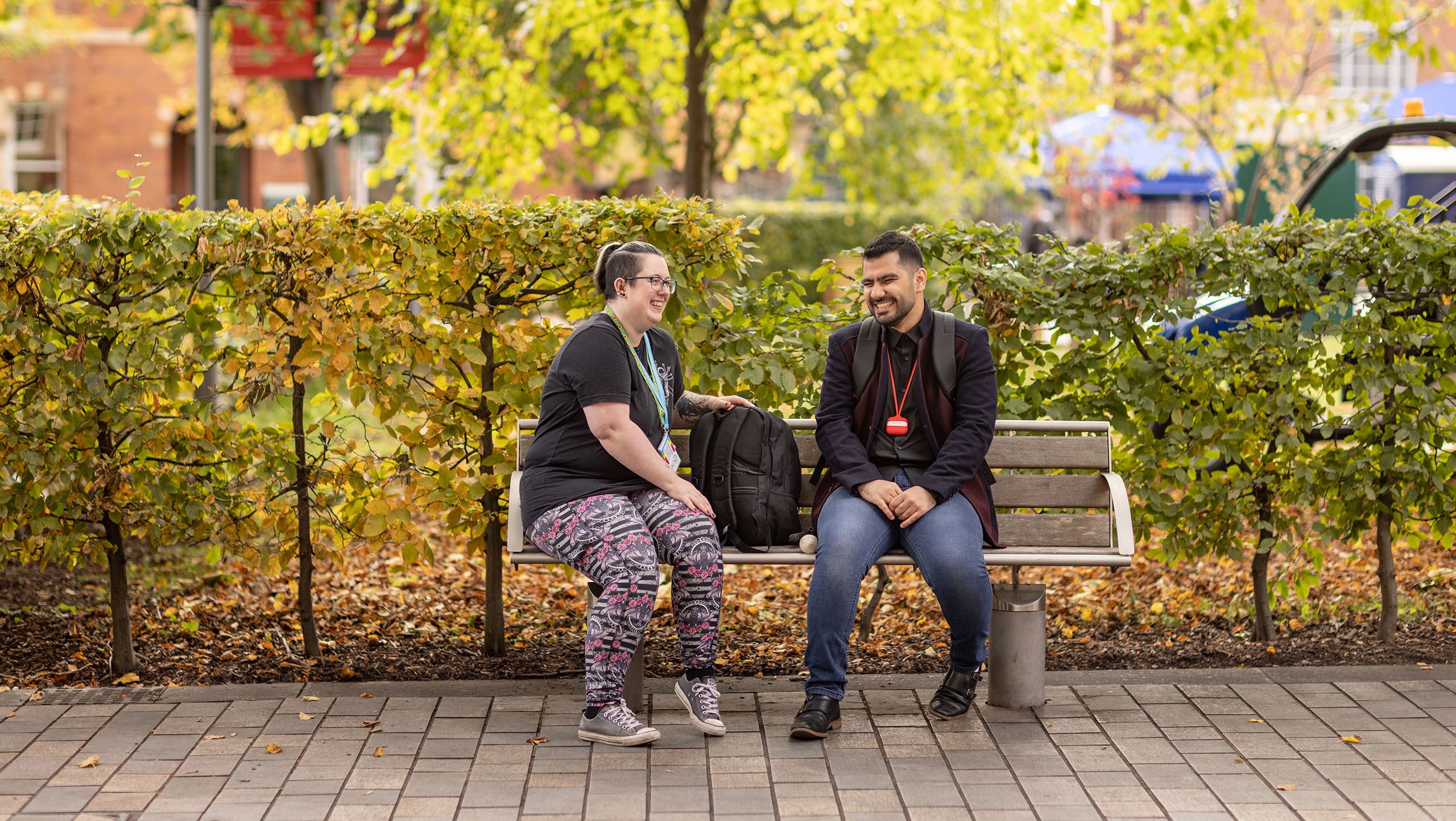
We’ve learned so much from our lived-experience collaborators. They’ve actively encouraged us to apply the principles of co-production.
This has already led to us acting in new ways, taking constructive criticism and being self-critical about situations which have not worked as well. We’ve reflected on what we’ve done in the past and had frank discussions with our collaborators about how to do things differently.
We think about how to include lived experience members based on their personal attributes: what unique insight does each individual offer which could be beneficial to a wider demographic?
We also need to think about when people should get involved – and how to do this early enough to respond to potential challenges.
We’ve also reflected on how we can do more to encourage our collaborators to actively co-produce in research. This means nurturing any skills group members wish to develop, such as leadership and organisation, communication skills, and personal development.
And it means thinking about ways we could boost their confidence and ‘empower’ them to take up further opportunities. Some of this is about challenging our own norms in research.
The more voices we include, the more relevant our outputs will be”
We need to explicitly recognise the difference in power between a professional researcher and a person with lived experience. By being more open about our privileges and our own experience as researchers, we can alleviate some of these imbalances.
Listening to other people’s stories is a vital way of understanding privilege. However, the environment needs to be psychologically safe enough for people to do so.
In order to involve people meaningfully, you must make sure they feel comfortable enough to express themselves freely. When you bring a group of people together because of their lived experience, why wouldn’t they feel emotionally charged by telling their stories?
Yet in research we often expect calmness and objectivity. We may feel out of our depth when discussions become heated. This isn’t inclusive. We need to develop empathy for the range of emotions a person will experience when giving a part of themselves to our research.
It can be daunting, pressured and uncomfortable for some speaking about past experiences to professionals; for others, it can be a release, feeling like they are being heard by others who can relate.
Perhaps we also need to manage the expectations of people who are involved within these restrictive processes. Adverts for lived experience experts can be idealistic, using phrases like ‘We want your views’ and ‘Shape our research’, but saying ‘… but we can’t do this or that’ between the lines.
There are still gaps in our approach. Our group is becoming more diverse, but there’s always more we can do to reach out to under-served communities. The more voices and experiences we include, the more our outputs will be relevant to a broader population.
An exciting future
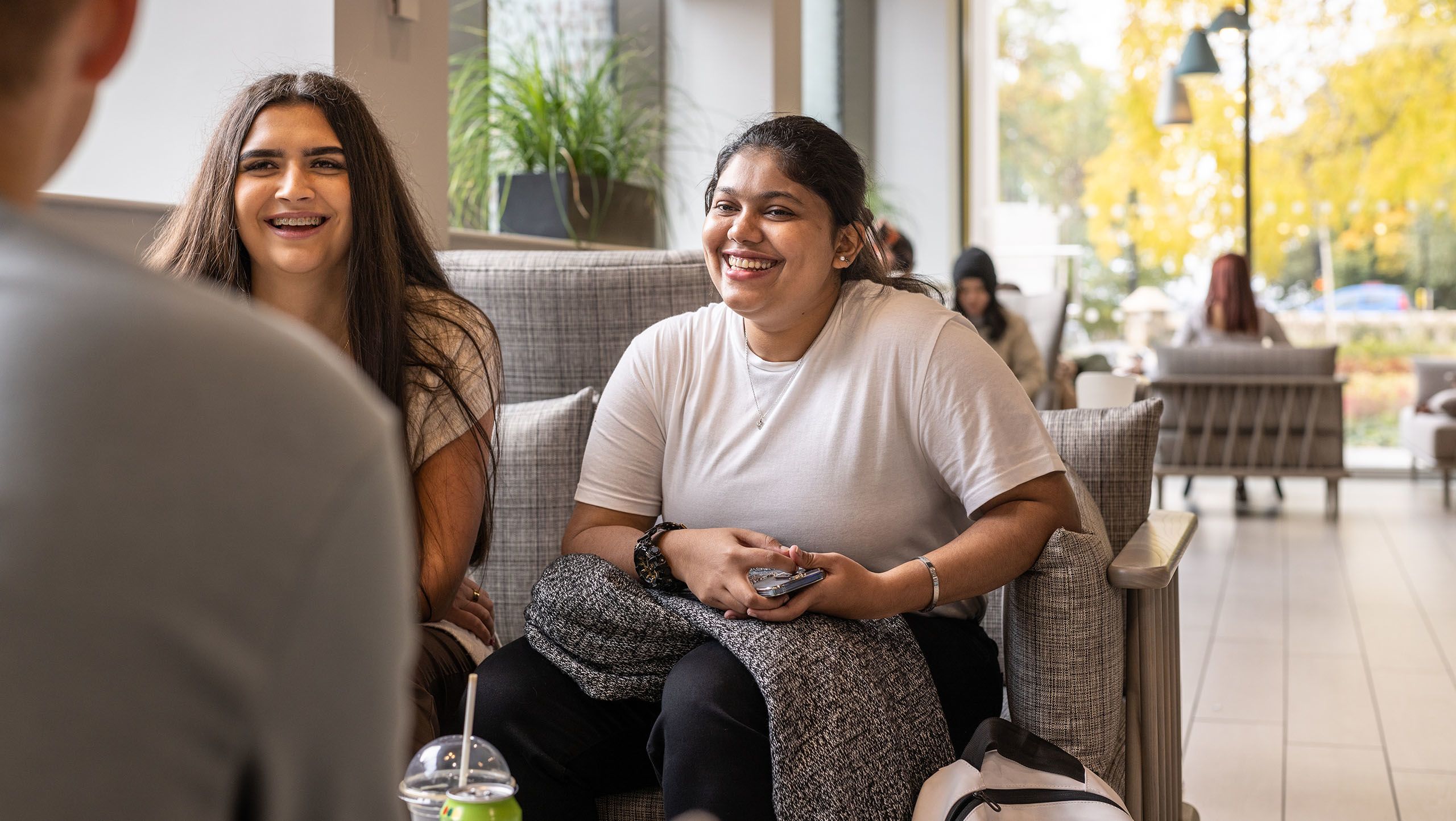
Despite these challenges, we’re excited about the future of co-production and its potential to improve health services. The group members hold us to account. We have difficult conversations.
By asking us ‘why’, they force us to take a less black and white approach – and to recognise the range of possibilities. The boundaries around what is possible become less fixed. Every time we reflect and challenge our thinking, we’re learning for future research and service design.
Working with people with lived experience to establish ways of working from the outset is crucial. Doing so can help create a psychologically safe environment where honesty, transparency and clear communication are valued. It can also support the work needed to address power imbalances so partnerships are more equitable.
Working alongside people with lived experience from the start can also shift researchers’ thinking. We need to move away from the ‘researcher’ and ‘patient’ dynamic. The relationship should be one where everyone is learning from each other. There should be clear spaces outside of ‘project’ meetings for teams to get to know each other, and to consider the impact beyond research trials and findings.
By enabling people to share their stories and expertise in flexible ways, we can shift the emphasis towards the experiences of the communities we work with. In doing so we have the potential to contribute to wider conversations, such as self-harm in racialised communities. But we do need to commit enough time for this to happen.
These are big ambitions, so what is within our power? We know that co-production has impact if it is an integral part of projects from conception. This is being reflected in the approach of research funding bodies and the NHS. Through working meaningfully with local people and funding projects outside of research – in communities, providers can create more authentic services.
We need to move away from the ‘researcher’ and ‘patient’ dynamic”
Here at Leeds, we’re committed to being a ‘university without walls’, working with people beyond academia. It’s a mainstay in our strategy to make change happen.
In the future, this might require a complete restructuring of the role of co-production. We believe that shifting the power imbalance is about making these changes and letting people with lived experience lead the way. This might involve rethinking what counts as high-quality evidence.
With medical evidence predominantly based on the White population, we need to explore different approaches and experiences for different groups.
People only use their voices in places they feel safe. How do we start those relationships afresh? We can begin by feeding into future research projects that challenge stigma specific to these communities, develop culturally appropriate services, and break down barriers to accessing self-harm support.
By taking a co-productive approach, we get closer to having health and social care services which provide high-quality care that is safe, effective and suitable. This increases the chances of people having a positive experience within the context of their care. It will also be equitable, well-led and sustainable.
Co-production is possible in research. The benefits far outweigh the drawbacks. If we’re willing to commit the time and resources, and to bring an open mind, we’re already on our way.
